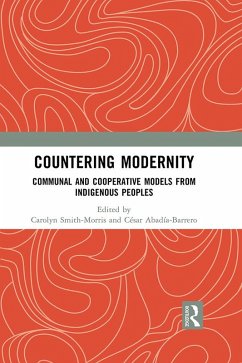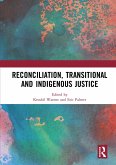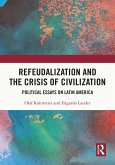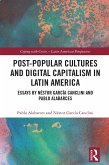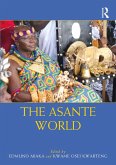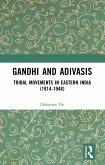Countering Modernity (eBook, PDF)
Communal and Cooperative Models from Indigenous Peoples
Redaktion: Smith-Morris, Carolyn; Abadia, Cesar E
41,95 €
41,95 €
inkl. MwSt.
Sofort per Download lieferbar

21 °P sammeln
41,95 €
Als Download kaufen

41,95 €
inkl. MwSt.
Sofort per Download lieferbar

21 °P sammeln
Jetzt verschenken
Alle Infos zum eBook verschenken
41,95 €
inkl. MwSt.
Sofort per Download lieferbar
Alle Infos zum eBook verschenken

21 °P sammeln
Countering Modernity (eBook, PDF)
Communal and Cooperative Models from Indigenous Peoples
Redaktion: Smith-Morris, Carolyn; Abadia, Cesar E
- Format: PDF
- Merkliste
- Auf die Merkliste
- Bewerten Bewerten
- Teilen
- Produkt teilen
- Produkterinnerung
- Produkterinnerung

Bitte loggen Sie sich zunächst in Ihr Kundenkonto ein oder registrieren Sie sich bei
bücher.de, um das eBook-Abo tolino select nutzen zu können.
Hier können Sie sich einloggen
Hier können Sie sich einloggen
Sie sind bereits eingeloggt. Klicken Sie auf 2. tolino select Abo, um fortzufahren.

Bitte loggen Sie sich zunächst in Ihr Kundenkonto ein oder registrieren Sie sich bei bücher.de, um das eBook-Abo tolino select nutzen zu können.
This volume highlights and examines how Indigenous Peoples continue to inhabit the world in counter-modern ways. It illustrates how communalist practices and cooperative priorities of many Indigenous communities are simultaneously key to their cultural survival while being most vulnerable to post-colonial erasure.
- Geräte: PC
- mit Kopierschutz
- eBook Hilfe
Andere Kunden interessierten sich auch für
![Countering Modernity (eBook, ePUB) Countering Modernity (eBook, ePUB)]() Countering Modernity (eBook, ePUB)41,95 €
Countering Modernity (eBook, ePUB)41,95 €![Reconciliation, Transitional and Indigenous Justice (eBook, PDF) Reconciliation, Transitional and Indigenous Justice (eBook, PDF)]() Reconciliation, Transitional and Indigenous Justice (eBook, PDF)43,95 €
Reconciliation, Transitional and Indigenous Justice (eBook, PDF)43,95 €![Statebuilding and State Formation in the Western Pacific (eBook, PDF) Statebuilding and State Formation in the Western Pacific (eBook, PDF)]() Statebuilding and State Formation in the Western Pacific (eBook, PDF)31,95 €
Statebuilding and State Formation in the Western Pacific (eBook, PDF)31,95 €![Refeudalization and the Crisis of Civilization (eBook, PDF) Refeudalization and the Crisis of Civilization (eBook, PDF)]() Olaf KaltmeierRefeudalization and the Crisis of Civilization (eBook, PDF)41,95 €
Olaf KaltmeierRefeudalization and the Crisis of Civilization (eBook, PDF)41,95 €![Post-Popular Cultures and Digital Capitalism in Latin America (eBook, PDF) Post-Popular Cultures and Digital Capitalism in Latin America (eBook, PDF)]() Pablo AlabarcesPost-Popular Cultures and Digital Capitalism in Latin America (eBook, PDF)41,95 €
Pablo AlabarcesPost-Popular Cultures and Digital Capitalism in Latin America (eBook, PDF)41,95 €![The Asante World (eBook, PDF) The Asante World (eBook, PDF)]() The Asante World (eBook, PDF)46,95 €
The Asante World (eBook, PDF)46,95 €![Gandhi and Adivasis (eBook, PDF) Gandhi and Adivasis (eBook, PDF)]() Debasree DeGandhi and Adivasis (eBook, PDF)40,95 €
Debasree DeGandhi and Adivasis (eBook, PDF)40,95 €-
-
-
This volume highlights and examines how Indigenous Peoples continue to inhabit the world in counter-modern ways. It illustrates how communalist practices and cooperative priorities of many Indigenous communities are simultaneously key to their cultural survival while being most vulnerable to post-colonial erasure.
Dieser Download kann aus rechtlichen Gründen nur mit Rechnungsadresse in A, B, BG, CY, CZ, D, DK, EW, E, FIN, F, GR, HR, H, IRL, I, LT, L, LR, M, NL, PL, P, R, S, SLO, SK ausgeliefert werden.
Produktdetails
- Produktdetails
- Verlag: Taylor & Francis eBooks
- Seitenzahl: 278
- Erscheinungstermin: 11. Juli 2024
- Englisch
- ISBN-13: 9781040087428
- Artikelnr.: 70644989
- Verlag: Taylor & Francis eBooks
- Seitenzahl: 278
- Erscheinungstermin: 11. Juli 2024
- Englisch
- ISBN-13: 9781040087428
- Artikelnr.: 70644989
- Herstellerkennzeichnung Die Herstellerinformationen sind derzeit nicht verfügbar.
Carolyn Smith-Morris is a medical anthropologist and professor at The University of Texas Southwestern Medical Center, O'Donnell School of Public Health. Her research documents the experience of chronic disease, particularly diabetes, among Indigenous and Mexican immigrant communities and contributes to theories of chronicity and decolonization of healthcare. Her books include two monographs (Diabetes Among the Pima: Stories of Survival and Indigenous Communalism: Belonging, Healthy Communities, and Decolonizing the Collective) and two edited volumes on medical anthropology. She is also a contributing researcher and author with Cultural Survival in support of Indigenous rights. César Abadia is a Colombian activist and scholar. He is an associate professor of anthropology and human rights at the University of Connecticut. He integrates different critical perspectives in the study of how for-profit interests transform access, continuity, and quality of health care. He has conducted activist-oriented research in Brazil and Colombia, focusing on health care policies and programs, human rights judicialization and advocacy, and social movements in health. His current collaborative research supports community-based proposals in health and wellbeing after Colombia's 2016 peace accord. He is the author and editor of several books including I Have AIDS but I am Happy: Children's Subjectivities, AIDS, and Social Responses in Brazil and Health in Ruins: the Capitalist Destruction of Medical Care at a Colombian Maternity Hospital.
Introduction PART I: Communalism as Ancestral Knowledge and Balance across Many Beings 1. Trig metawe: Restoring the tears of dispossession for küme mongen 2. The multiplication of the multiple, communalism and Indigenous Tensions in Brazil 3. Relating to the Forest: Possibilities and Limitations of Collaborative Research and Community Media Production 4. Intercultural Communalism: Intercultural and intergenerational work around medicinal plants in a village in southern Colombia PART II: Communalist Entanglements with Modernity 5. Autonomy, Land Stewardship, and Indigenous Emancipatory Praxis through Legislative Activism in Costa Rica and Multilateral Institutions 6. Akubadaura: Resistance and organization. The struggle of Colombian indigenous women for the conquest of their rights and the defense of their communities and territories 7. Countering Modernity through the Purko Maasai Olpul healing retreat 8. Who "Communitize" Whom? The Countercommunal Models of the Forager Nayaka and Modern India 9. Between conformity and nonconformity: challenges for weaving community life among the Nasa del Cauca Indigenous People, Colombia PART III: Contending with Scale: Communalism across Different Audience 10. Levels of Communalism in the Ecuadorian Amazon: Combatting Modernity with the Help of Indigenous Radio 11. Politics of Representations: Making Indigenous paintings for sale in Central Australia 12. Rights, Repatriation and Return: The Sámi 13. "Nation" v. "Rom": Yol u articulations of communal identity in northeast Arnhem Land, Australia
Introduction PART I: Communalism as Ancestral Knowledge and Balance across Many Beings 1. Trig metawe: Restoring the tears of dispossession for küme mongen 2. The multiplication of the multiple, communalism and Indigenous Tensions in Brazil 3. Relating to the Forest: Possibilities and Limitations of Collaborative Research and Community Media Production 4. Intercultural Communalism: Intercultural and intergenerational work around medicinal plants in a village in southern Colombia PART II: Communalist Entanglements with Modernity 5. Autonomy, Land Stewardship, and Indigenous Emancipatory Praxis through Legislative Activism in Costa Rica and Multilateral Institutions 6. Akubadaura: Resistance and organization. The struggle of Colombian indigenous women for the conquest of their rights and the defense of their communities and territories 7. Countering Modernity through the Purko Maasai Olpul healing retreat 8. Who "Communitize" Whom? The Countercommunal Models of the Forager Nayaka and Modern India 9. Between conformity and nonconformity: challenges for weaving community life among the Nasa del Cauca Indigenous People, Colombia PART III: Contending with Scale: Communalism across Different Audience 10. Levels of Communalism in the Ecuadorian Amazon: Combatting Modernity with the Help of Indigenous Radio 11. Politics of Representations: Making Indigenous paintings for sale in Central Australia 12. Rights, Repatriation and Return: The Sámi 13. "Nation" v. "Rom": Yol u articulations of communal identity in northeast Arnhem Land, Australia
